Romantic Warriors II: A Progressive Music Saga About Rock in Opposition is a film of genre Documentary released in USA on 1 january 2012
Romantic Warriors II: A Progressive Music Saga About Rock in Opposition (2012)
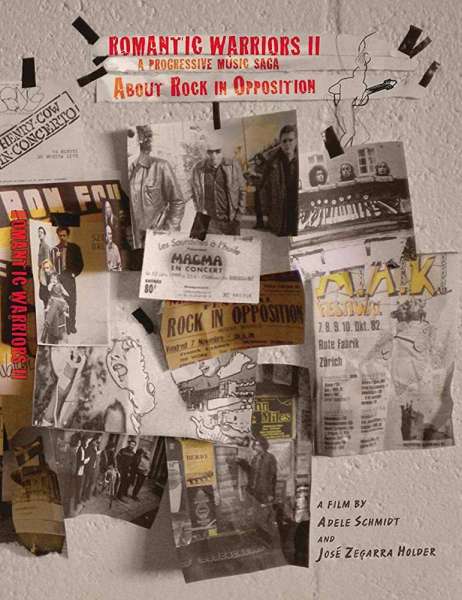
If you like this film, let us know!
Released in USA 1 january 2012
Length 1h38
Genres Documentary
Romantic Warriors II: A Progressive Music Saga About Rock in Opposition is a 2012 feature-length documentary film about the Rock in Opposition movement of the late 1970s, the music genre it spawned, and the influence it has on experimental groups across the world. The film was written and directed by Adele Schmidt and José Zegarra Holder, and was released in the United States by Zeitgeist Media. It premiered in Washington, D.C. on September 28, 2012. The film was generally well received by critics, with a reviewer at AllMusic saying that it "covers all the points an aficionado could possibly want".
Romantic Warriors II is a sequel to Zeitgeist Media's 2010 documentary on progressive rock by Schmidt and Holder, Romantic Warriors: A Progressive Music Saga. In 2013 Zeitgeist also released Romantic Warriors II: Special Features DVD, comprising additional material filmed during the making of Romantic Warriors II. A third installment in the series, Romantic Warriors III: Canterbury Tales was released in April 2015.
Synopsis
Romantic Warriors II: A Progressive Music Saga About Rock in Opposition comprises interviews with people involved with or connected to Rock in Opposition (RIO), and archival and contemporary concert footage of RIO and RIO-related bands. RIO was formed in 1978 when English experimental rock group Henry Cow invited four similar bands from Europe to perform at a festival in London, Etron Fou Leloublan (France), Samla Mammas Manna (Sweden), Stormy Six (Italy) and Univers Zero (Belgium). Chris Cutler of Henry Cow explains in an interview that experimental groups of the day had no outlet for their music because they were ignored by the major record labels. The purpose of RIO was to share resources amongst its members and organize concerts for each other across Europe. The film features each of the original RIO groups with archival performance footage and present-day interviews with some of the band members. French progressive rock band Magma is also featured, and while never a member of RIO, the film shows how Magma operated outside the music industry and were a big influence on RIO.Trailer of Romantic Warriors II: A Progressive Music Saga About Rock in Opposition
Bluray, DVD
Streaming / VOD
Comments
Leave comment :
Suggestions of similar film to Romantic Warriors II: A Progressive Music Saga About Rock in Opposition
There are 8969 with the same cinematographic genres, 8313 films with the same themes (including 836 films with the same 4 themes than Romantic Warriors II: A Progressive Music Saga About Rock in Opposition), to have finally 70 suggestions of similar films.If you liked Romantic Warriors II: A Progressive Music Saga About Rock in Opposition, you will probably like those similar films :

Inside Living Things (2011)
, 17minutesDirected by Joe Hahn
Genres Documentary, Musical
Themes Films about music and musicians, Documentary films about music and musicians, Documentaire sur une personnalité, Musical films
Actors Chester Bennington, Joe Hahn

Wild Man Blues (1997)
, 1h45Directed by Barbara Kopple
Origin USA
Genres Documentary, Musical
Themes Films about music and musicians, Documentary films about music and musicians, Documentaire sur une personnalité, Musical films
Actors Woody Allen, Letty Aronson, Soon-Yi Previn
Rating68%





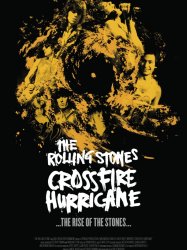
Crossfire Hurricane (2012)
, 1h51Directed by Brett Morgen
Origin USA
Genres Documentary, Musical
Themes Films about music and musicians, Documentary films about music and musicians, Documentaire sur une personnalité, Musical films
Actors Mick Jagger, Ronnie Wood, Mick Taylor
Rating73%





On their 50th anniversary, the Rolling Stones, with the support of archive footage and interviewed by director Brett Morgen, retrace the first 20 years of their career. The film discusses their early success in the sixties; the way the media characterised the difference between them and the Beatles; the exceptional musical talent of Brian Jones; their first song-writing; the difference between the boy fans' aggressiveness that resulted in fights with the police and the girl fans' screaming hysteria; Mick Jagger and Keith Richards drug use and their arrest; the musical contribution of Brian Jones that was waning due to excessive use of drugs, and his death a few weeks after the separation from the band; Mick Taylor's debut concert in Hyde Park in memory of Jones and the return to world tours; the awful organization of the Altamont Free Concert; their flight to tax exile in 1971; the recording of Exile on Main St. in a villa on the south of France; Mick Taylor's departure and the arrival of Ronnie Wood; and the arrest of Keith Richards in Canada for possession of heroin and his decision to detox, to safeguard the future of the band.
 , 58minutes
, 58minutesOrigin USA
Genres Documentary
Themes Films about music and musicians, Films about religion, Documentary films about music and musicians, Documentaire sur une personnalité, Documentary films about religion, Films about classical music and musicians, Musical films, Films about Jews and Judaism
Actors Judd Hirsch
Rating6%





 , 30minutes
, 30minutesDirected by D. A. Pennebaker
Origin USA
Genres Documentary, Musical
Themes Films about music and musicians, Documentary films about music and musicians, Documentaire sur une personnalité, Musical films
Actors John Lennon, Yoko Ono
Rating69%





Mark Deming of Rovi explains that the film "captures the self-proclaimed "quasar of rock" in fine and unfettered form in this 1969 date at a Toronto festival". He performs a series of his greatest hits.
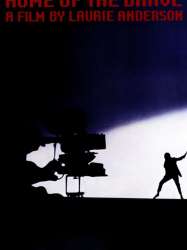
Home of the Brave (1986)
, 1h30Directed by Laurie Anderson
Origin USA
Genres Documentary, Musical
Themes Films about music and musicians, Documentary films about music and musicians, Documentaire sur une personnalité, Musical films
Actors Laurie Anderson, David Van Tieghem
Rating78%





Home of the Brave est un film musical qui reprend des extraits de l'album d'Anderson Mister Heartbreak, de son spectacle multimedia United States Live, et des morceaux originaux. Une partie du film a été enregistrée lors de concerts.

One Direction: This Is Us (2013)
, 1h58Directed by Morgan Spurlock
Origin United-kingdom
Genres Documentary, Musical
Themes Seafaring films, Films about music and musicians, Transport films, Documentary films about music and musicians, Documentaire sur une personnalité, Musical films
Actors Harry Styles, Louis Tomlinson, Simon Cowell, Chris Rock, Martin Scorsese
Rating45%





Billed as an intimate all-access look at life on the road for the global music phenomenon, This Is Us follows the lives of the five members of the boy band, One Direction. One Direction was first put into a group on the X Factor in 2010. This Is Us contains live concert footage from London's O2 Arena, and footage from their lives pre- and post-X Factor appearance, and gives insight into the preparation for their concerts and ultimately what it is like to be One Direction.
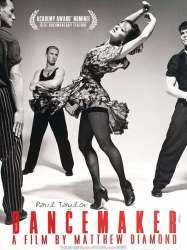
Dancemaker (1998)
, 1h38Directed by Matthew Diamond
Origin USA
Genres Documentary
Themes Dance films, Films about music and musicians, Documentary films about music and musicians, Documentaire sur une personnalité, Musical films
Rating68%





 , 1h46
, 1h46Origin USA
Genres Comedy, Documentary
Themes Films about music and musicians, Documentary films about music and musicians, Documentaire sur une personnalité, Musical films
Actors Jeff Foxworthy, Bill Engvall, Larry the Cable Guy, Ron White
Rating69%





The Blue Collar guys have reunited for their second tour, and in this movie, they are in Denver, and funnier than ever.
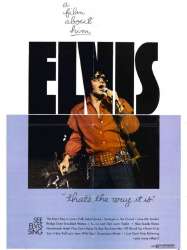
Elvis: That's the Way It Is (1970)
, 1h48Directed by Denis Sanders
Origin USA
Genres Documentary, Musical
Themes Films about music and musicians, Documentary films about music and musicians, Documentaire sur une personnalité, Musical films
Actors Elvis Presley, Cary Grant, Sammy Davis Jr., Red West
Rating78%





Le King vous donne rendez-vous pour un concert mythique à Las Vegas en 1970. Ce concert, filmé en 6 soirées, nous montre un Elvis au meilleur de sa forme qui électrise la salle en interprétant ses plus grands succès.
 Connection
Connection